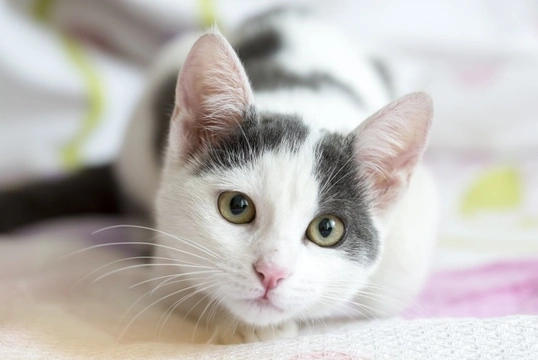
Feline Immunodeficiency Virus (FIV) in Cats
Feline Immunodeficiency Virus or FIV is a complicated type of retrovirus and it seriously and negatively impacts a cat's own immune system. The majority of cats infected by the virus go on to lead full and normal lives, but they are constantly prone to other infections as well as certain forms of feline cancer if they have FIV.
The Retrovirus Explained
The retrovirus negatively impacts a cell by inserting a copy of itself into the cell's DNA which allows it to replicate and multiply. The retrovirus can lay dormant for years and can take just as long to incubate before a cat shows any symptoms of being infected by it. FIV can be likened to HIV in humans which can be the precursor to a person developing AIDS.
The Causes
Research has shown there is no genetic predisposition for cats developing the condition, but studies have suggested that genetics may play a key role in how the disease progresses and to what extent a cat would be affected should they be infected with FIV. Once a cat has been diagnosed as having the disease, they typically live for another five years with the chances of a cat being infected increasing as they age.
Feline Immunodeficiency Virus can be transmitted from cat to cat with males being more at risk of being infected than their female counterparts due to the fact they tend to fight more with each other when allowed to roam around in the great outdoors. The virus is transmitted from cat to cat through bites and scratches. Some kittens are born with FIV, but this is quite rare. It is also worth noting that when cats are mated, they can also pass on the FIV virus although this is also quite uncommon.
Symptoms to Watch Out For
The symptoms of FIV are similar to those associated with feline leukemia virus or FeLV, another immunodeficiency disorder that affects cats and to make things harder, the signs of there being something wrong can be quite diverse. Infected cats tend to have recurrent illnesses and more especially the following:
- Upper respiratory disorders
- Gastrointestinal disorders
Other signs a cat may display when they are infected with FIV could include the following:
- Enlarged lymph nodes
- Gums and surround tissues of the mouth are inflamed
- Inflammation of the nose and tissues around the eye
- Inflammation of the cornea
- Inflammation of the iris which can cause glaucoma
- Chronic kidney insufficiency
- Constant diarrhoea
- Bacterial and fungal infections of the ear and skin
- Fever
- Muscle wastage - more especially at the later stage of the disease
- Cancer
- Nervous system abnormalities
- Changes in personality which often sees a normally gentle cat becoming aggressive
Diagnosing the Condition
A vet would ideally need to have a cat's full medical history and be told how the onset of any symptoms first presented themselves. They would carry out a full physical examination and would typically recommend doing the following tests which would help confirm a diagnosis:
- A complete blood count
- A chemical blood profile
- A urinalysis
The vet would need to rule out any other reasons for a cat's symptoms which includes fungal, viral and bacterial infections. Testing for parasites and cancerous tumours would also be necessary before a vet would be able to make a final diagnosis.
Treatment Options
Providing a cat is not severely dehydrated, they can normally be treated as an outpatient. The vet would need to treat and manage any secondary infections a cat might be experiencing because they have been infected by FIV. Should any teeth be infected, a vet might recommend removing them and if there are any tumours, these too might have to be surgically removed. Cats with the condition also need to be put on a special diet to ensure they remain as strong and as healthy as possible.
Living with a Cat with FIV
When cats are diagnosed with FIV, keeping a close eye on their health is essential even when they are being treated and have been put on a specific diet. Cats are always prone to developing secondary infections because their own immune systems cannot cope with them. Infected cats tend to lose muscle tone and weight which is something to be expected and they often succumb to the disease because of this. However, if caught early enough, many cats can go on to lead full and happy lives, but would need to be closely monitored once they have been diagnosed as suffering from FIV for the rest of their lives.
Prevention
Some cat owners now have their pets vaccinated against FIV although use of this vaccine is controversial and therefore not typically recommended. It is also important to make sure cats do not come into contact with any infected cats which can prove challenging if pets are allowed to roam around in the great outdoors. It is also worth noting that some cats can be carriers"" of FIV and as such when tested would prove positive but would never show any symptoms of carrying the disease. The other thing to bear in mind is that vaccinated cats would also test positive although they are not infected by FIV.
""



